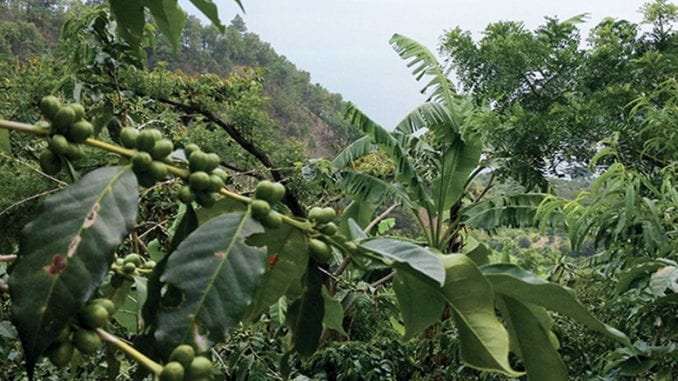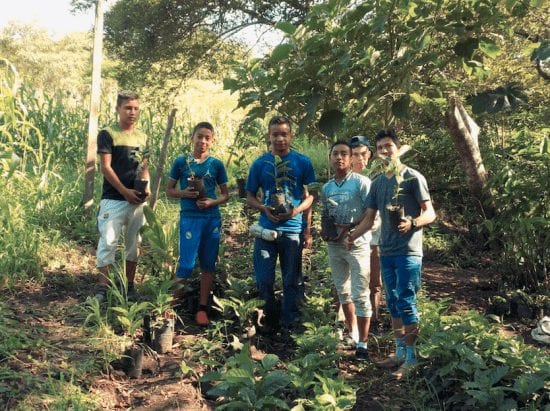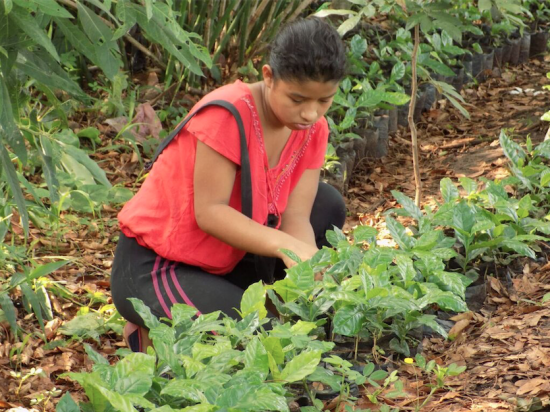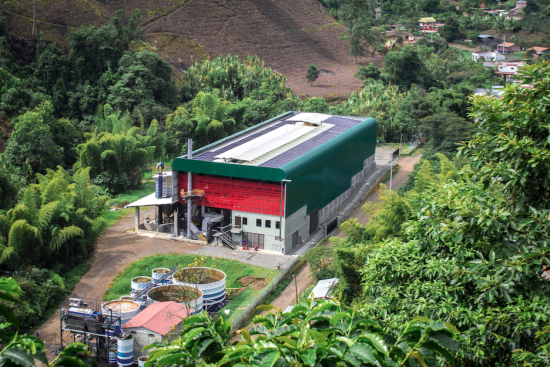
The family coffee company’s Direct Impact Initiative works toward bettering the coffee community and boosting its sustainability efforts.
BY KATRINA YENTCH
BARISTA MAGAZINE ONLINE
Photos courtesy of Gaviña Coffee
Protecting the environment through coffee has become a higher priority than ever right now. Longtime coffee importer and roaster Gaviña Coffee has been making these efforts since 2004, when they started sponsoring sustainability projects in several of the regions they sourced coffee from. Many of the Gaviña family members have also been involved in organizations working toward change in the coffee industry like the Pacific Coast Coffee Association and the International Women’s Coffee Alliance.

The Gaviña Direct Impact Initiative launched in 2015 to further strengthen the company’s sustainability efforts and increase transparency with their buyers. Through this program, Gaviña’s four areas of focus are farmers, sustainable sourcing, environmental sustainability, and social stewardship. As a result, the company has not only made change in the coffee community, they’ve also made self-conscious efforts to go green themselves.
Since the Direct Impact Initiative began, the company sponsored the building of a wet mill from scratch for the delos Andes Cooperativa, consistently works to reduce packaging waste, and has projects that help families outside of the coffee-growing community too. For example, one project partners with food donation organizations that feed families nutritiously. Their Vernon, Calif., facility achieved a zero-waste-to-landfill in 2017 and host a regenerative thermal oxidizer that significantly reduces natural gas consumption. Among several other building initiatives, they’ve gone as far as incorporating charging stations for their hybrid company vehicles.

As Gaviña’s sustainability director, Yu-Yue Yen—whose work spans 15 years with the company and 25 years in the field—has had a major part in leading this initiative. She started several environmental organizations and currently sits on the advisory board for the UCLA Extension Recycling and Solid Waste Management program. On top of participating in other committees that work on coffee sustainability, she also teaches at the UCLA Extension to foster students in sustainability leadership. We chatted with Yu-Yue about some of the Direct Impact Initiative’s projects, as well as the goals that Gaviña has accomplished under it thus far.
Katrina Yentch: When did the program begin, and what were the reasons for starting it?
Yu-Yue Yen: Although Gaviña actively supports coffee farmers at origin, gives back to the local and global community, and continuously improves our own operational efficiency at the facility, the focus has always been doing the right thing, not promoting it. With increasing awareness of the impact of environmental pollution on our health and the community, consumers are expecting companies to be transparent about where they source their materials, how products are made, and their impact on the environment, and what the companies are doing to take care of people and communities they live in. We officially launched the Direct Impact Initiative in 2015 so that we can share our sustainability achievements with the world, expand our sustainability programs, and mentor others to do the same.

When did the La Chaparrala Wet Mill in Andes, Colombia, program start, and how is it structured?
Gaviña sponsored the La Chaparrala Wet Mill in 2015. The land was purchased in late 2015, received construction approval in 2016, and opened its door for operation on April 1, 2019. This is the third regional wet mill for the delos Andes Cooperativa, the largest cooperative for coffee growers in Colombia. The wet mill will be managed and operated by delos Andes Cooperativa.
Our joint goals for the wet mill are: increase cash flow and improve quality of life for the coffee farmer and protect the environment. The cooperative will be monitoring and measuring progress on two fronts: how the wet mill benefited the coffee farmers and how the wet mill’s operation impacted the environment. Annually, and as needed, Gaviña will review with delos Andes Cooperativa the progress to date, identifying areas for improvement and next steps.
What are some examples of how it has changed the lives of producers involved at the mill for the better?
In Colombia, coffee cherries are wet milled and dried into parchment on the farms of individual farmers. … If coffee cherries are not processed in the same day, it will affect the quality and quantity of resulting parchment. Most farmers do not have water treatment equipment, so the contaminated processed water is released directly into the river, their main source of water supply, [and they will] breathe unhealthy air emissions from fermented coffee waste.
When the wet mill started accepting its first coffee cherries on April 1 [of this year], farmers dropped off coffee cherries harvested and received cash payment that same day with prices based on parchment equivalent price for their coffee cherries. Now the farmers can take care of their workers and have more time to spend with family since they no longer have to process coffee and maintain their wet mill. Feedback from the farmers has been very positive. Some of them already have made plans to renovate their farms, attend schools, and learn new skills, as well as look forward to drinking cleaner water and breathing fresher air.

